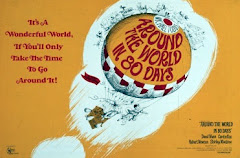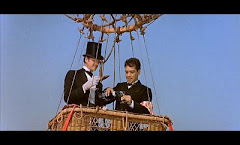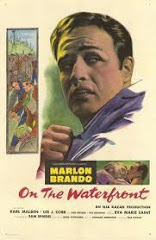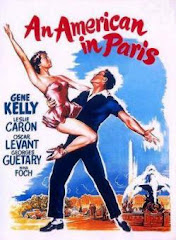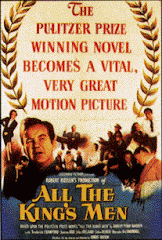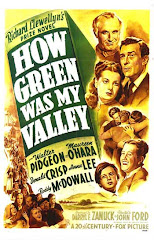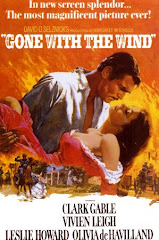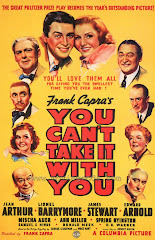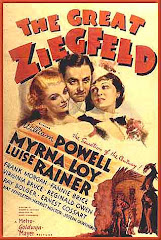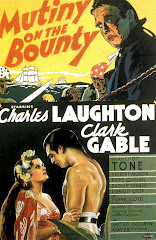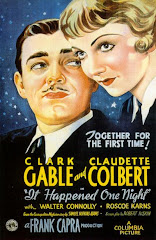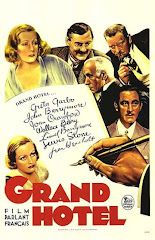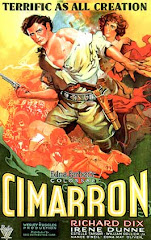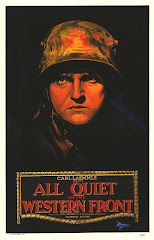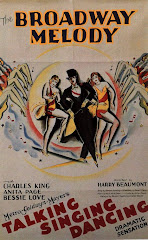Director: William Wyler
Cast: Myrna Loy, Fredric March, Dana Andrews, Teresa Wright, Virginia Mayo, Harold Russell
Genre: Drama, Romance
Other Nominees: Henry V, It’s a Wonderful Life, The Razor’s Edge, The Yearling
Genre: Drama, Romance
Other Nominees: Henry V, It’s a Wonderful Life, The Razor’s Edge, The Yearling
The Best Years of our Lives deals with three World War II veterans who return to America to begin the road to rehabilitation, Al Stephenson (Fredric March), Fred Darry (Dana Andrews), and Homer Parrish (Harold Russell). All three soldiers bare either physical or emotional scars from their wartime experience and struggle to adjust to normal life. We see psychological problems manifest themselves in all three, most notably in the night terrors that Fred suffers through and in Al’s struggle with alcoholism. And we see the physical devastation war can leave behind in young Homer Parrish who is missing both hands below the elbows. While all three suffer different agonies they each have women in their lives who attempt to help them through it. The Best Years of Our Lives is a film that tests the love that these women have for their men to see if it can survive the difficulties that the veterans struggle with.
There are three very different love stories in this film and each displays a different test for love to endure. First there is the love between the now disabled Homer and his high school sweetheart Wilma. Homer is a Navy officer who lost both his hands in battle and is played by Harold Russell, an actual war veteran afflicted with said disability. Despite having little acting experience Harold excels in his role, perhaps because the pain and confusion he portrays is less pretend for him than it would have been for other actors. Incidentally, Harold won the Best Supporting Actor Oscar for this role and was commemorated during the ceremony for “bringing hope and courage to his fellow veterans”.
When we first meet Homer Parrish it appears that he has accepted his disability and even overcome it. Rather than suffering with what would have been an understandable depression he is jovial and lively while he speaks with his fellow veterans. But when his disability meets his old life, his family and his girlfriend, it surfaces as a painful problem and it is in the awkward embrace of his girlfriend that we first glimpse his suffering.
Fred Derry: You gotta hand it to the Navy; they sure trained that kid how to use those hooks.
Al Stephenson: They couldn't train him to put his arms around his girl, or to stroke her hair.
We learn that Homer is simply unable to accept the notion that Wilma can see beyond his missing hands. He does not want her to settle for him, for something less than she deserves. As he puts it: “I want you to be free, Wilma, to live your own life. I don't want you tied down forever just because you've got a kind heart.” The love that Wilma has for Homer is tested to see if it can be blind to Homer’s physical disability.
The second love story is between the older soldier Al and his wife of a few decades. When Al returns home he bears no physical disabilities and is even welcomed back at work with a promotion. But he has returned to find his children have grown into young adults and finds a wife who is distant and unfamiliar to him. Overwhelmed by his old life suddenly returning to him and by his inability to relate to his family Al turns to alcohol to help him through it.
Mrs. Stephenson has a great line in which she explains to her daughter that love is not always easy and alludes to the fact that she and her husband need to rebuild their relationship. This comes after the daughter exclaims that they have "never had any trouble." Speaking to her husband she says:
How many times have I told you I hated you and believed it in my heart? How many times have you said you were sick and tired of me; that we were all washed up? How many times have we had to fall in love all over again?
The love between Al and his wife is tested as they struggle to reconnect. Both have to be patient enough, kind enough and understanding enough in order for that to happen.
The third love story is a story of new love that has to overcome an enormous social taboo. Fred returns home but is unable to find his wife. It turns out she has taken up work at a nightclub and, using the money Fred has been sending back home, she has been living the life of a socialite. There is clearly little love between the two and the bitterness that lives in their marriage becomes all the more apparent when Fred is unable to find work and his wife has to face the prospect of a great lifestyle change.
Fred Derry: Thirty-two fifty. I used to make over four hundred dollars a month in the Air Force.
Mr. Thorpe: The war is over, Derry.
When this film was screened to audiences it is said that there were many audible gasps when Marie Darry uttered the word “divorce” to her husband. At the time divorce was severely frowned upon and considered to be socially unacceptable. By today’s standards the big moment has less of an impact and comes across as melodramatic but I think it is important to understand how unheard of this word was in film. Personally, considering that Fred suffered great psychological distress I found the disregard for his experience more shocking than the mention of the D word!
Marie Darry: I gave up the best years of my life, and what have you done? You flopped! Couldn't even hold that job at the drugstore. So I'm going back to work for myself and that means I'm gonna live for myself too. And in case you don't understand English, I'm gonna get a divorce.
The final test for love does not exist within this marriage but outside it. As he and his wife separate Fred meets Al’s daughter and they begin a romance together. But it is a timid and frightened affair that may not survive in the society it finds itself in. Of the three love stories this is perhaps the one most at risk of survival simply because of its environment. The ultimate test for both lovers is to see if their love is worth the sacrifice of being labeled a social outcast.
The Best Years of Our Lives challenges love to conquer these tests. The test for love to be blind to physical or monetary problems, the test for love to be patient and understanding, the test for love to defy social conventions when necessary, and the test for love to endure ridicule. The men face enormous problems when they return to a life that no longer makes sense to any of them. In all three examples it is love that helps the men through their problems and in the end perhaps the movie argues that it's only love that could help them through it.
Up Next: Gentleman’s Agreement
